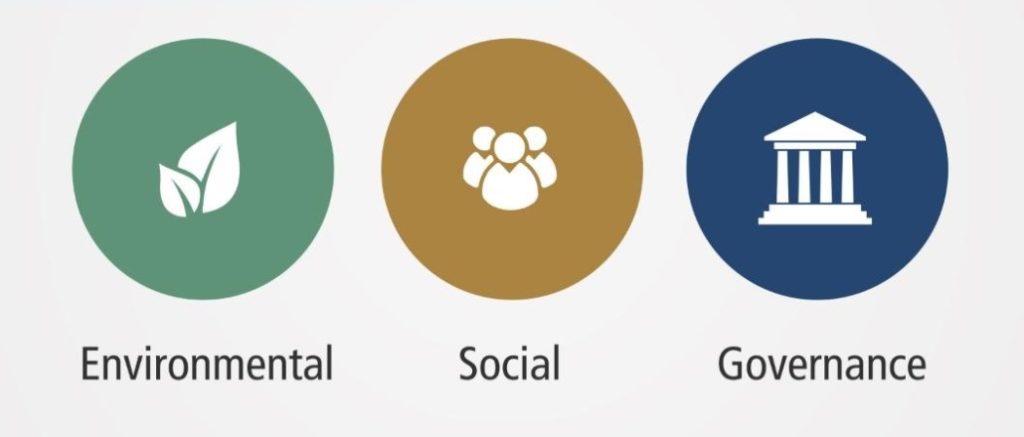A top-five question I hear, whenever I help someone get started investing, is “Can I do socially responsible investing with my retirement funds?”
Inevitably, my answer disappoints: “Nope!”

At the beginning of the third decade of the third millennium, we still have no good way of both earning a solid “return on markets” through stocks, while simultaneously feeling good about our social consciences.
I’m not saying that because it’s a bad idea, necessarily, to accept a lower return on our investments in favor of living our values. That’s fine, very cool, it’s something we should aspire to. I have no problem with being willing to accept a lower return in order to sleep well at night, for any number of reasons. Some will even argue that sustainable investing should provide a higher return in the long run, which is a fine thing to believe, if slightly less plausible.
I’m also not saying that Wall Street is unable to provide a set of products to satisfy this wish for socially responsible investing.
On the contrary, starting a decade or two ago, Wall Street seemed to be on a solid path to providing that option for people who want to invest according to their moral values. The mutual fund category known as ESG – for Environmental, Social, and Governance – allows an easy way to identify companies that pledge to do good in the world. That category is in fact booming, following record year to date inflows to the tune of $17.6 billion through November 2019, more than triple previous annual amounts.
What I am saying instead is that it seems to me this type of investing – as currently available through the ESG filter – is extremely dissatisfying, at least for the people typically asking me this question.
Dissatisfaction starts with one important complication: If you put 5 social justice warriors in a room in front of a Bloomberg terminal, they will very likely not agree on what constitutes a socially conscious investment.
Should we eliminate weapons manufacturers, casinos, alcohol brands and tobacco purveyors? Those seem at first relatively easy to agree on. But reasonable people could disagree on whether guns and gambling are good fun, while smoking and drinking are sinful. Or vice versa.
Those are all examples of ‘negative filters,’ in the sense that a mutual fund manager could filter out any company that is involved in a forbidden industry. Eliminate a bunch of industries and there are still many left over for investing.
A separate socially-aware method would be to attempt to invest in ‘positive’ filters, such as a company that tries to promote labor safety, or one that practices corporate board diversity. If those are your priorities, it is somewhat possible to find this through the ESG filter.
Still others would find it nice to be able to select positively for companies earning profits from fair trade, renewable energy, or manufacturing bioplastics, to crowd out industries considered less good for the planet or for people. We want that ‘positive’ filter approach to social investing to exist, although it is harder to find because it tends to be done on a small scale only.
At a future, later, stage of our late-stage capitalist system, these alternate strategies and disagreements in approach will matter more.
But here’s the grim reality of where ESG is now. The billions flowing into ESG funds are going to not-very-inspiring investments. The reality falls far short of where I think social justice folks imagine it should be or that it is.
One investment firm early in the socially responsible investing space, Calvert Research and Management, boasts high rankings for its ESG-influenced approach. The top 10 holdings of their flagship Calvert Equity Fund are lovely companies that I admire and am a customer of. You’ll recognize brands like Visa, Mastercard, Dollar General, Alphabet (aka Google), and Microsoft in their top 10. But it doesn’t feel like I’m exactly saving the planet when I invest in worldwide leaders in credit card, low-end retail, and software companies.

Over at Vanguard’s FTSE Social Index Fund – “screened based on social criteria such as workplace issues, environmental issues, product safety, human rights, and corporate responsibility” – here are the top ten holdings, in order of size: Apple, Microsoft, Alphabet, Facebook, JPMorganChase, Johnson & Johnson, Visa, Proctor & Gamble, Bank of America, and Walt Disney. Again – great companies – I’ve been a customer of all of them at some time or another. But my sense is that these are not exactly appealing recipients of the capital of social justice warriors worldwide.
Search for top ESG companies and the lists are always like this: Great, profitable corporations that operate far from the fuzzy feeling I might think I’m getting from “socially responsible” investing.
In my most cynical moments, this feels to me a lot like greenwashing. Imagine you are in charge of a company that would like to attract the investment capital of ESG mutual funds. So you hire a Chief Equity Officer, or Chief Compliance Officer, and now you can be considered good enough to satisfy the ESG screen of many mutual fund companies. For a few hundred thousand dollars in salary you qualify to attract billions in capital. It’s an easy decision.
I am not the only one who finds this situation somewhat unsatisfactory. The Wall Street Journal reports that The US Securities and Exchange Commission recently began in inquiry into ESG funds.
The gist of the SEC’s inquiry is to verify whether fund criteria for investing and voting is consistent with stated ESG principles, while at the same time acknowledging that ESG principles are poorly defined.
The SEC Commissioner Hester Pierce is quoted on record saying that:
“While financial reporting benefits from uniform standards developed over centuries, many ESG factors rely on research that is far from settled.” On another occasion, she has said about ESG: “I think that should be part of the discussion, trying to figure out to what extent ESG might stand for ‘enabling stakeholder graft.’ “
I think socially responsible investing is a worthy goal, but the means as of now are pretty unsatisfactory, at least through public company investing.
Post read (498) times.






One Reply to “Dissatisfaction with ESG”
https://www.canarywharfian.co.uk/threads/the-impact-and-future-of-esg-in-trading-and-asset-management.716/
Here’s another take on the topic. What are your thoughts?